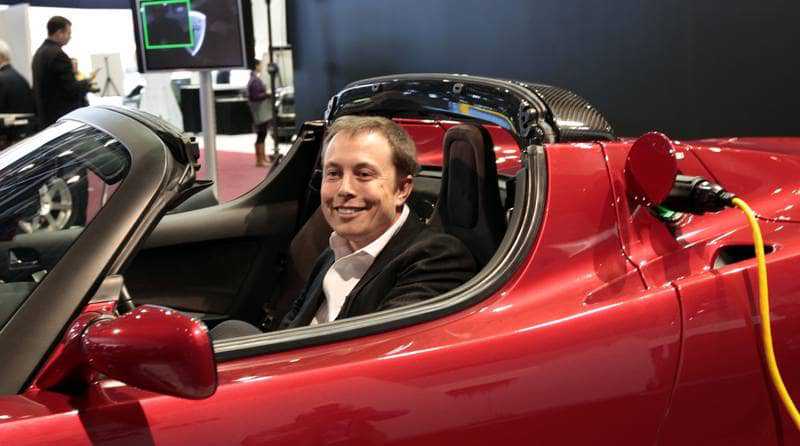'Encouraging', 'dangerous', 'inevitable': Elon Musk's Twitter deal sets off a firestorm
27 April, 2022

Elon Musk's agreement to buy 100 per cent of Twitter and take it private has created a firestorm, raising burning questions while becoming a hot and polarising topic that won't die anytime soon — and probably even well after the deal is finalised.
The world's wealthiest person and chief executive of Tesla Motors scored a huge victory with Monday's $44 billion deal to buy Twitter, in which stockholders will receive $54.20 per share, a 38 per cent premium over the social platform's closing stock price on April 1. The deal is expected to be completed by the end of 2022.
“Free speech is the bedrock of a functioning democracy and Twitter is the digital town square where matters vital to the future of humanity are debated,” Mr Musk said.
Read More : Elon Musk to buy Twitter for $44bn
“I also want to make Twitter better than ever by enhancing the product with new features, making the algorithms open source to increase trust, defeating the spam bots and authenticating all humans. Twitter has tremendous potential — I look forward to working with the company and the community of users to unlock it.”Cameron Winklevoss, a cryptocurrency advocate and entrepreneur who threw his support for Mr Musk's takeover bid, said the result was "inevitable".
Mr Musk's view about Twitter’s untapped potential is substantiated. While Twitter, founded in 2006, has a healthy global user base of around 436 million, it's only the 15th-biggest social media platform as of January, according to Statista data.
Twitter's financial performance tends to be lacklustre because of disappointing user and revenue numbers, and the company has tried to address these by introducing new features and increasingly banking on advertising.
"The pressure was on for Twitter to make a decision on Musk’s deal before Thursday’s earnings announcement as many were expecting disappointing results," Edward Moya, senior market analyst at New York-based Oanda, wrote in a note.
The $54.20-per-share offer was "great news", he said, given the company's current situation. Twitter will report its fiscal first quarter results on Thursday.
"It doesn’t seem like the company was going to get things right anytime soon ... Twitter shares are below the offer price as some investors are concerned that the deal might not close."
However, the platform has become a flashpoint for discussions that influence society, which has at times turned it into a breeding ground for disinformation and harmful content. The company tried to address these concerns by policing its own content and sanctioning offending accounts.
Mr Musk's vision to transform Twitter and improve free speech may come at a price, and he hasn't even laid out any concrete plans on how he would achieve such a lofty goal in an era of controversial online content that attracts regulatory and public scrutiny.
"Elon knows one thing, and that is having things his way ... [but] he hasn't given out how he wants to improve free speech," Naeem Aslam, chief market analyst at AvaTrade, said in a note.
"If the platform is left ungoverned, it could promote racism, hurting its massive user base. There is little to no information on how Elon wants to improve Twitter's platform, although he has provided clues about what he doesn't like in the platform."
American billionaire investor and television personality Mark Cuban, who suggested last week that Mr Musk's Twitter bid was a tactic to boost the company's stock value, tweeted that he was "very surprised" by the agreement. But that also puts Mr Musk "on the clock", said Mr Cuban, who added that he will be paying attention to what happens next.
Saudi Arabian billionaire Prince Alwaleed bin Talal, who owns a stake in Twitter through his Kingdom Holding Company and had rejected Mr Musk’s offer arguing that it wasn't at par with its value, has yet to react to the agreement.
Tensions within Twitter's workforce
In the lead up to the acquisition, employee conversations were quite negative, said Casey Newton, founder of online tech publication Platformer. Even after the announcement, employees remained largely concerned, he wrote.
But Mr Musk's pledge of overhauling Twitter — opening its algorithm to the public and ridding it of bots, in particular — has struck a chord with some of them.
"In one-on-one discussions, responses were more tempered. Some employees I’ve spoken with are open to the idea that a private Twitter run by Mr Musk stands a better chance of improving the service than would a public company beholden to its shareholders," Mr Newton said.
"They like the fact that he wants to eliminate harmful bots and bring more clarity to how recommendation algorithms work."
Politics — a frequent topic on Twitter — is one of the segments that could be greatly affected by any potential changes. US senators have already tweeted hot takes, with Democrats, some describing the move as "dangerous", very concerned and Republicans ecstatic ― the latter most likely still reeling from the perceived bias against them culminating in the ban of former president Donald Trump from the platform.
His immediate challenge, once Mr Musk formally takes over, is to quickly carry out a strategy to realise his vision. Even so, he would need to start planning early and make sure he knows his priorities.
“Mr Musk is going to want to grow users and monetise, but the challenge of Twitter is that you have a highly engaged base that doesn’t generate a lot of revenue,” said Gene Munster of US-based Loup Ventures. “When Elon talks about unlocking value, is he talking about free speech, or making money?”
Source: www.thenationalnews.com
